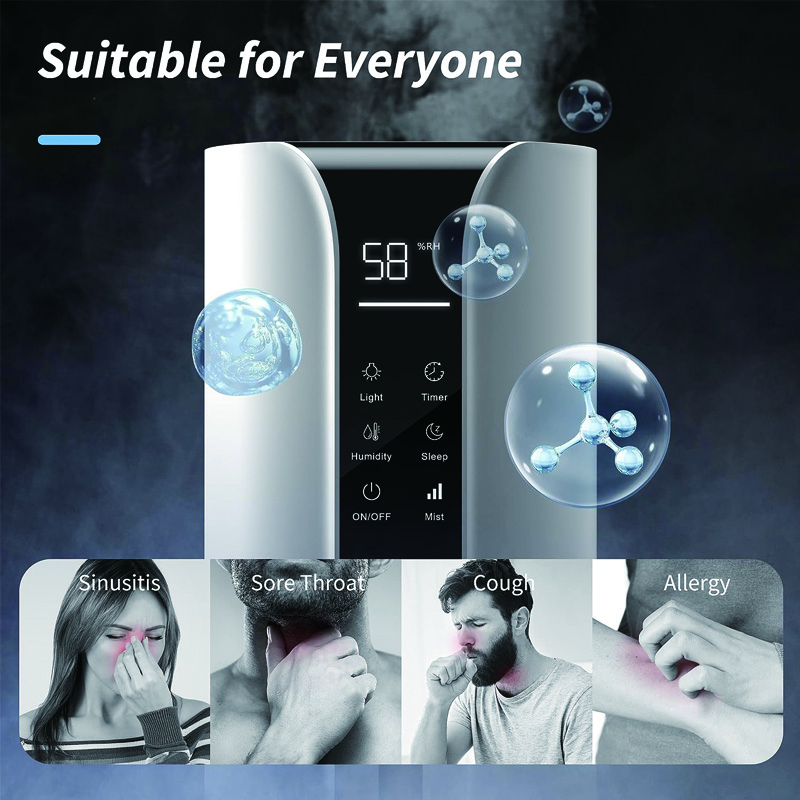Humidifiers can ease problems caused by dry air, but they need upkeep. Here are tips to ensure your humidifier doesn't become a health hazard.
Dry sinuses, bloody noses, and cracked lips: Humidifiers are often used to soothe these familiar problems caused by dry indoor air. And if your child has a cold, a cool-mist humidifier may ease a stuffy nose by adding moisture to the air.
But humidifiers can make you sick if they aren't maintained properly or if humidity levels stay too high. If you use a humidifier, check the humidity levels in the room where it is used and keep your humidifier clean. Mold or bacteria can grow in dirty humidifiers. If you have allergies or asthma, talk to your healthcare provider before using a humidifier.

What are humidifiers?
Humidifiers are devices that release water vapor or steam. They boost the amount of moisture in the air, also called humidity. Types of humidifiers include:
Central humidifiers. These are built into home heating and air conditioning systems. They're meant to humidify the whole house.
Ultrasonic humidifiers. These devices use sound waves to release a cool mist.
Impeller humidifiers. These humidifiers give off a cool mist with a rotating disk.
Evaporators. These devices use a fan to blow air through a wet wick, filter or belt.
Steam vaporizers. These use electricity to create steam that cools before leaving the machine. Don't buy this type of humidifier if you have children. The hot water inside a steam vaporizer may cause burns if spilled.
Humidifiers only add moisture to the air. You can't use them to breathe in products such as essential oils for aromatherapy.
Ideal humidity levels
Humidity varies depending on the season, the weather and where your home is. In general, humidity levels are higher in the summer and lower in the winter. It's ideal to keep the humidity in your home between 30% and 50%. Humidity that's too low or too high can cause problems.
Low humidity can cause dry skin. It also can bother the inside of the nose and the throat. It can make the eyes feel itchy too.
High humidity can make your home feel stuffy. It also can cause condensation, which is when water vapor in the air turns liquid. Droplets may form on walls, floors and other surfaces. Condensation can trigger the growth of harmful bacteria, dust mites and molds. These allergens can cause breathing problems and trigger allergy and asthma flare-ups.
How to measure humidity
The best way to test humidity levels in your home is with a hygrometer. This device looks like a thermometer. It measures the amount of moisture in the air. When you buy a humidifier, think about getting one with a built-in hygrometer. This is called a humidistat. It keeps humidity within a healthy range.
We recommend our hot selling standing flood ultrasonic humidifier for you,9L capacity design,more detail,welcome to contact us to get more news!!!
Post time: Aug-08-2023

